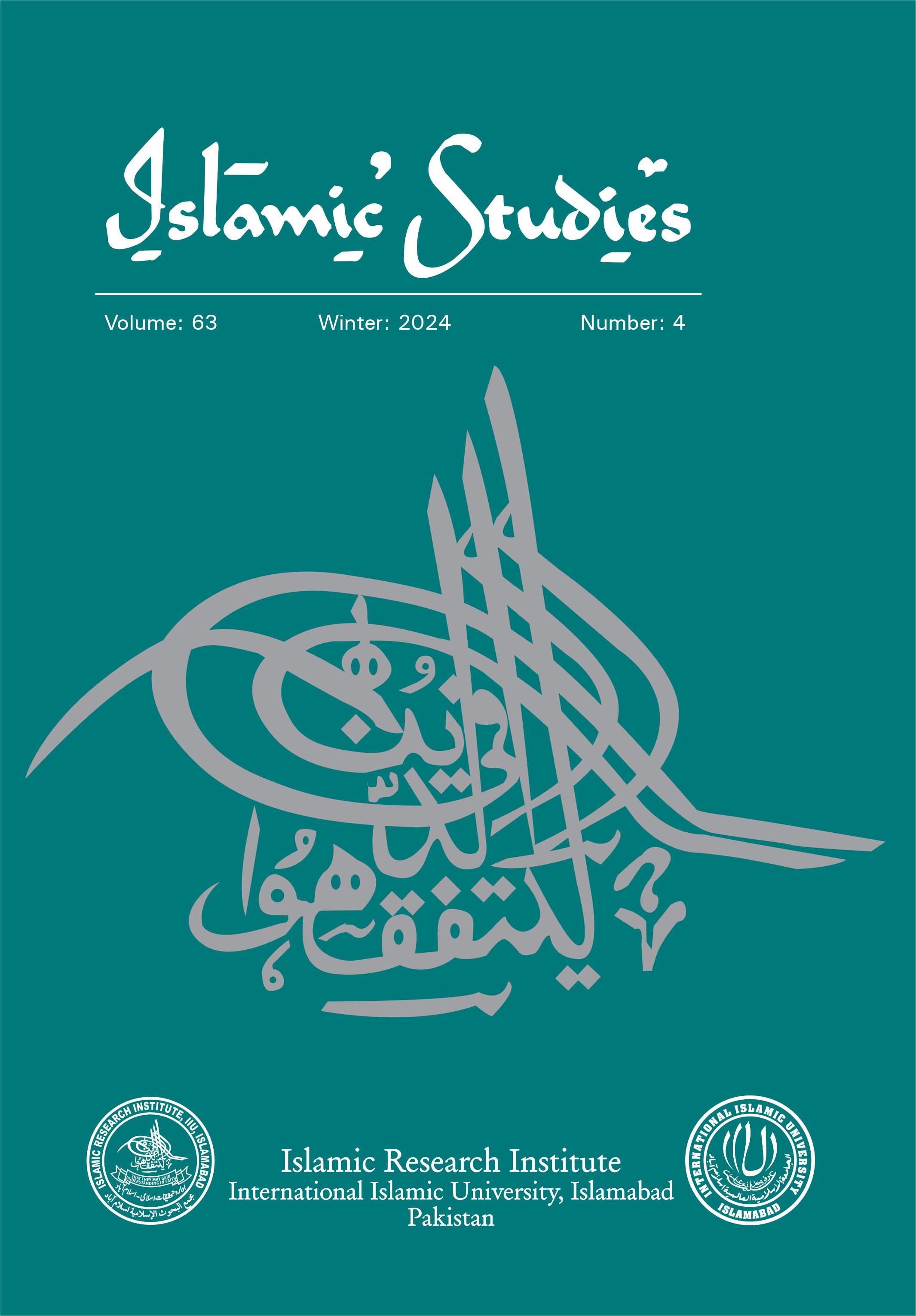The Qur’ānic Covenants
A New Legal Perspective
DOI:
https://doi.org/10.52541/isiri.v63i4.3435Keywords:
Islam, covenant theology, Qur’ān, legal architecture, covenants, contract law, sharī‘ah, contracts, representations, agreements, treaties.Abstract
This paper explores the Qur’ānic concept of covenants through a legal lens, presenting a structured framework to examine the Qur’ān’s assurances, directives, and obligations as legally cognizable agreements. By integrating theological scholarship with principles of modern contract law, the study identifies Qur’ānic covenants as foundational to divine-human interaction. Through detailed analysis, the paper categorizes these covenants into overarching universal commitments, legal relationships with nonbelievers, and a comprehensive array of believer-specific agreements, including personal, social, and worldly obligations. Emphasizing the Qur’ān’s unique legal architecture, the research illustrates how covenants resemble modern contractual elements such as offer, acceptance, and consideration while maintaining the Qur’ān’s spiritual and transcendental essence. The findings highlight the Qur’ān’s capacity to regulate moral and ethical conduct internally, independent of external legal systems, underscoring its relevance to contemporary faith-based and secular frameworks. This interdisciplinary approach offers profound insights into the Qur’ānic message, reaffirming its role as a self-sustaining system of accountability and ethical universality.
References
“The Contract Act 1872.”
“UNIDROIT Principles 2016.”
Black’s Law Dictionary. 11th ed. St. Paul, MN: Thomson-Reuters, 2019.
Brohi, A. K. Fundamental Law of Pakistan. Karachi: Din Muhammadi Press, 1958.
Carlill v. Carbolic Smoke Ball Co., 1893 QB 256 (1893).
Errington v. Errington, 1952 KB 1 290 (1952).
Faur, José. “Understanding the Covenant.” Tradition: A Journal of Orthodox Jewish Thought 9, no. 4 (1968): 33-55.
Gwynne, Rosalind Ward. Logic, Rhetoric, and Legal Reasoning in the Qur’ān: God’s Arguments. London: Routledge, 2004.
Horton, Michael. Introducing Covenant Theology. Grand Rapids: Baker Books, 2009.
Jaffer, Tariq. “Is There Covenant Theology in Islam?” In Islamic Studies Today: Essays in Honor of Andrew Rippin, edited by M. Daneshgar and W. Saleh, 98–121. Leiden: Brill, 2017.
Kadi (Al-Qadi), Wadad. “The Primordial Covenant and Human History in the Qur’ān.” Proceedings of the American Philosophical Society 147, no. 4 (2003): 332-38.
Kesavananda Bharati v. State of Kerala AIR, 1973 S.C. 1461 (1973).
Khattab, Mustafa., trans. The Clear Quran: A Thematic English Translation of the Message of the Final Revelation. Lombard, IL: Book of Signs Foundation, 2016.
Ltd v. Eagle Aircraft Services Ltd, 1968 WLR 1 74 (1968).
Lumbard, Joseph E. B. “Covenant and Covenants in the Qur’an.” Journal of Qur’anic Studies 17, no. 2 (2015): 1–23.
Morrow, John Andrew. The Covenants of the Prophet Muhammad with the Christians of the World. Brooklyn, NY: Angelico Press, 2013.
O’Connor, Andrew J. “Qur’anic Covenants Reconsidered: Mīthāq and ‘Ahd in Polemical Context.” Islam and Christian–Muslim Relations 30, no. 1 (2019): 1-22. https://doi.org/10.1080/09596410.2018.1546042.
Rane, Halim. “Higher Objectives (Maqāṣid) of Covenants in Islam: A Content Analysis of ‘Ahd and Mīthāq in the Qur’ān.” Religions 14, no. 4 (2023): 514. https://doi.org/10.3390/rel14040514.
Safi, Louay M. The Qur’anic Narrative: The Journey of Life as Told in the Qur’an. Westport, CT: Praeger, 2008.
Shahran, Mohd Farid bin Mohd. “Primordial Covenant as the Basis of Religion: The Qur’ānic Mῑthāq of Alastu According to Syed Muhammad Naquib Al-Attas.” TAFHIM: IKIM Journal of Islam and the Contemporary World 15, no. 1 (2022): 1–22. https://doi.org/10.56389/tafhim.vol15no1.1.
Williamson, Paul R. “The Biblical Covenants.” The Gospel Coalition, accessed October 10, 2024. https://www.thegospelcoalition.org/essay/the-biblical-covenants/.
Downloads
Published
How to Cite
Issue
Section
License
Publication of material in the journal means that the author assigns copyright to Islamic Studies including the rights to electronic publishing. This is, inter alia, to ensure the efficient handling of requests from third parties to reproduce articles as well as to enable wide dissemination of the published material. Authors may, however, use their material in other publications acknowledging Islamic Studies as the original place of publication. Requests by third parties for permission to reprint should be addressed to the Editor, Islamic Studies.


